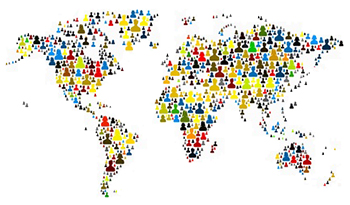
2015 is shaping up to be a significant year in the advancement and adoption of genome sequencing and personalized medicine around the globe.
The year 2015 is shaping up to be an inflection point in the advancement and adoption of genome sequencing and personalized medicine. While private initiatives are often the centerpiece of media coverage, leading governments clearly have advanced a number of important initiatives this year. Indeed, many governments around the globe are actively promoting widespread utilization of genomics, supporting academic research, establishing industry guidelines, and raising public awareness.
Governments Serving as Catalysts for Genomics Progress
The efforts of officials worldwide to engage with and support the private sector’s tremendous potential have helped to make 2015 a significant year for expanding the use of genomics in clinical care. A few highlights of 2015 include:
— In the U.S., President Obama made precision health one of the centerpieces of his State of the Union address in January. Obama’s administration kicked this effort off by requesting a $215M investment in a Precision Medicine Initiative with the following key attributes:
- The cornerstone of Obama’s proposal is the plan to collect and analyze genomic data from a million or more volunteers;
- The initiative further supports genomics through expanded research into the genetic mutations that drive cancer;
- Additional funding is earmarked to maintain databases and develop industry standards.
— Germany and the U.K. expanded eligibility for government-funded genetic testing for breast cancer patients.
— Israel announced its intent to establish a government-sponsored genetic database.
— Through the National Institutes of Health and the National Cancer Institute, the U.S. federal government proposed dozens of new funding opportunities to support research in genetic sequencing and analysis.
— Japan launched an Initiative on Rare and Undiagnosed Diseases to provide genomic analysis and expert consultation for up to 1,000 individuals with childhood onset of undiagnosed conditions.
— Through Genomics England (which I described in further detail here), the U.K. Department of Health tapped WuXi NextCODE and others to begin interpretation in its groundbreaking 100,000 Genomes Project.
In news today, the trend toward globalization of genomics continues, as private sector leaders aligned to meet the needs of the forward-looking government health initiatives of Qatar:
— WuXi NextCODE and the Sidra Medical and Research Center partner to power population genomics and precision medicine in Qatar. Our partnership will:
- Facilitate clinical diagnostics;
- Accelerate research; and
- Support the Qatar Genome Project.
As I have discussed in an earlier post, large-scale population studies are an essential step in harnessing the power of genomics to improve health worldwide. Since WuXi NextCODE’s foundational heritage as part of deCODE Genetics’ landmark analysis of Icelanders, we have always developed the tools to help translate sequence data into precision medicine on a large scale. In our work with Genomics England, our collaboration with Fudan Children’s Hospital to diagnose rare diseases in China, and now our partnership with Sidra, the team at WuXi NextCODE is leading the effort to realize the potential of genomics on a truly global scale. The increasing interest in supporting those efforts shown by leading governments across the globe is helping to drive the successful use and application of genomics worldwide.
